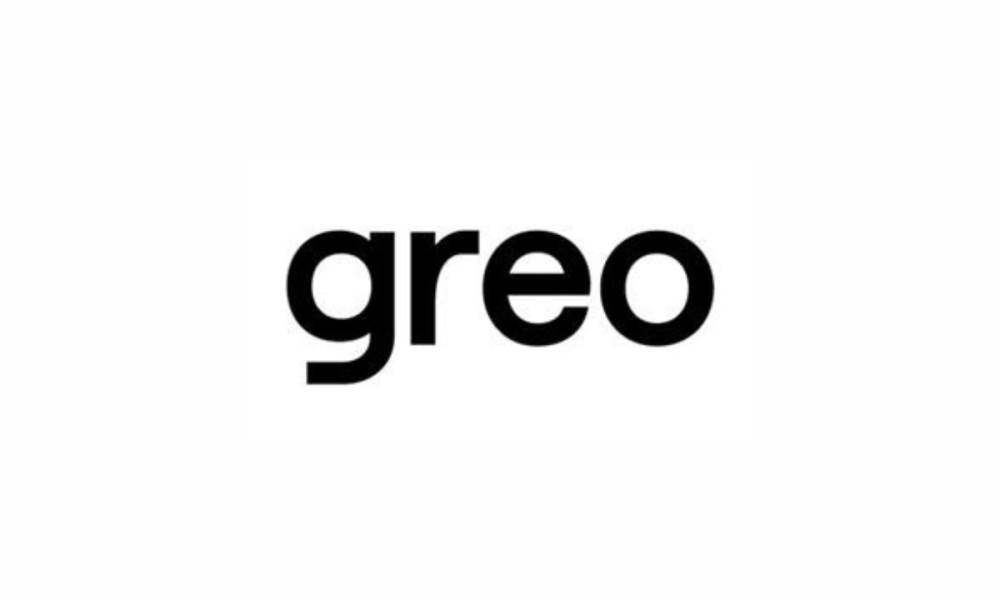Canada
Exceptional Results for Loto-Québec
End of the third quarter of fiscal 2022–2023
Loto-Québec posted total revenues of $2.225 billion and a consolidated net income of $1.204 billion at the end of the third quarter of 2022/2023.
It is its best performance since the Tobacco Control Act came into force, significantly impacting traffic at gaming establishments. These represent increases of $521.9 million (+30.7%) and $295.8 million (+32.6%), respectively, over the same period last year. Increases over the three first quarters of the pre-pandemic fiscal year (2019/2020) amount to 5.8% for revenues and 11.3% for net income.
Sound management efforts continued across all sectors, which resulted in an excellent ratio of total expenses to revenues of 28.2%, compared to 30.9% over the same period in fiscal 2019/2020.
“Our teams’ sustained efforts led us to these exceptional results and to our best performance in 17 years. All indications are that we will be able to pay a higher dividend than expected to the government and that benefits all Quebecers. I’m very proud of our work,” the President and CEO of Loto-Québec, Jean-François Bergeron, says.
“Thank you to our teams for incessantly improving our on-site and online entertainment offer, providing our customers with a quality experience and magical moments. The excitement our renewed programming and offer created is palpable at our casinos and gaming halls. Many acts of generosity highlighted this quarter, including our participation in the government of Québec’s Entraide campaign. We also supported other causes with our Détaillants de Cœur initiative and remained committed to the fight against food insecurity by organizing, among other things, activities benefiting the Moisson organizations.”
Results by sector for the period between April 1 and December 26, 2022:
Lottery
Lottery revenues amounted to $742.2million, which is a $2.6M (+0.4%) increase over the same period in 2021/2022. Lotto Max performed well. It paid more grand prizes of $50 million or more and more Maxmillions than during the same period in 2021/2022. Online lottery sales revenues represent 13.0% of the sector’s total revenues, compared to 3.7% for the same period in 2019/2020.
Casinos and gaming halls
Casino and gaming hall revenues stand at $829.3 million for a $313.9M (+60.9%) increase over the same period in 2021/2022 and a $69.0 million (+9.1%) increase over the same period in 2019/2020. The increase over last year can be explained in part by gaming location closures in 2021, whereas operations have returned to normal since the current fiscal year began. Online casino sales revenues represent 24.3% of the sector’s total revenues, compared to 9.1% for the same period of the pre-pandemic fiscal year.
Gaming establishments
Gaming establishment revenues amounted to $686.5 million, which is a $214.5M (+45.4%) increase over the same period in 2021/2022. Revenues from video lottery terminals remain similar to their pre-pandemic levels. The increase can be explained by the same factor as for casinos and gaming halls: establishment closures in 2021.
Quarterly highlights and CSR contributions for the period between September 27 and December 26, 2022:
Loto-Québec paid $397.1 million to lottery, network bingo and Kinzo winners over the quarter, totalling $1.103 billion since April 1. There were 32 new millionaires during the quarter, for a total of 69 since the beginning of the fiscal year.
Another phase of the 100% Legal campaign was rolled out. This time, its message focused on the local aspect: 100% of the amounts played on LotoQuebec.com remain in Québec and benefit the entire population.
New sportsbooks were set up, to the delight of sports fans. The first one was at the Casino du Lac-Leamy in November and the second at the Salon de Jeux de Trois-Rivières in January, shortly after the end of the quarter.
The 40 Célébration attendees were able to enjoy the gala in person this year at the Théâtre du Casino du Lac-Leamy. Sébastien Benoit, Gregory Charles and Véronic DiCaire hosted the event, which wowed not only attendees, but also all 1,290,000 viewers.
The corporation signed a new agreement with Gestev to handle programming at the Théâtre du Casino du Lac-Leamy. Just as it has been doing at the Cabaret du Casino de Montréal for the last year, this major event producer now offers a varied line-up of performances to the public of the National Capital Region as well.
The third edition of the campaign inviting players to manage their gaming took place in October, focusing on the importance of setting limits. It aimed at encouraging players on LotoQuebec.com to voluntarily set time and loss limits.
Loto-Québec supports several causes and non-profit organizations. Such initiatives, now under the Giving Back is a Win-Win program, made it possible for causes dear to Quebecers to receive over $1 million this fall.
Three of our establishments renewed their BOMA BEST certification this quarter, which recognizes excellence in energy and environmental management and performance in commercial real estate. The Casino du Lac-Leamy received the top certification level: Platinum.
Loto-Québec is committed to highlighting the creative and innovative spirit in the field of gaming and entertainment and, more broadly, of innovation by supporting the next generation. The corporation attended the MEGAMIGS festival and HUB Montréal, in addition to awarding several grants.
Powered by WPeMatico
Canada
Greo and CCSA Release New Report Named “Gambling Availability and Advertising in Canada: A Call to Action”

Recent gambling policy changes in Canada have led to increased opportunities to legally bet on sports and gamble online, 24 hours a day, seven days a week. The report “Gambling Availability and Advertising in Canada: A Call to Action” looks at the impacts of legal gambling in Canada since the approval of the Safe and Regulated Sports Betting Act in 2021. The report recommends developing a pan-Canadian strategy to address gambling-related harms. This is a new report by Greo Evidence Insights (Greo) and the Canadian Centre on Substance Use and Addiction (CCSA).
This call to action is in response to the significant increase in gambling advertising on billboards, social media, at commercial breaks during sports broadcasts and during sporting events. Increased gambling availability and advertising are expected to contribute to increased gambling in Canada, thereby posing a significant risk of harms among the general population, particularly for youth, young adults and other vulnerable populations.
The report also describes how the increased availability of gambling and in gambling advertising are of great concern because:
- The types of gambling being made available and promoted (single-event sports betting and live or in-play betting) are associated with a greater risk of harm. For example, single-event sports betting increases gambling intensity and gives an illusion of control over the outcome as people believe their knowledge of the game gives them a competitive edge.
- The volume of gambling advertisements repeatedly pairing sports with betting normalizes gambling, leading people to think of betting as an integral part of being a sports fan.
- Increased availability of gambling and in gambling advertising are happening at a time when many people in Canada are more vulnerable to problematic gambling and gambling-related harms because of the lingering health impacts of COVID-19 and a rise in the cost of living.
“Over the last few years, we have witnessed some of the most significant changes in gambling policy since the 1970s. We have seen a massive increase in gambling advertising and opportunities to gamble. We can no longer watch sports with our kids or go online without being subjected to an overwhelming amount of gambling advertising. Canada is at a critical moment in how it manages gambling. A national strategy or framework — similar to what we have for alcohol, tobacco and cannabis — is critical to manage the expected increase in gambling harm, especially among youth and other vulnerable people,” explained Dr. Matthew Young, Chief Research Officer at Greo, Senior Research Associate at the CCSA and Adjunct Professor at Carleton University.
The report recommends developing a national strategy that will:
- Develop national standards governing the promotion and availability of gambling;
- Manage conflicts of interest among gambling stakeholders;
- Address inadequate funding for gambling harm prevention and reduction initiatives and research;
- Monitor systematic changes in gambling-related harm, including any assessments of the social and economic costs of gambling; and
- Increase awareness of gambling-related harms among health and social service professionals and the public.
“Increased gambling among people living in Canada will undoubtebly result in increased harms and therefore increased societal costs. These include healthcare costs, criminal-justice costs, child welfare costs, increased unemployment and lost productivity costs because of gambling-related suicide. We need to think about our approach and ensure that it considers not only short-term government revenue and economic activity but also the longer-term societal costs. That’s why we need a national strategy,” Dr. Pam Kent, Director of Research and Emerging Trends at CCSA, said.
Canada
Call for a National Strategy to Address Gambling-Related Harms in Wake of Sports Betting Boom

Recent gambling policy changes in Canada have led to increased opportunities to legally bet on sports and gamble online, 24 hours a day, seven days a week. Released today, Gambling Availability and Advertising in Canada: A Call to Action looks at the impacts of legal gambling in Canada since the approval of the Safe and Regulated Sports Betting Act in 2021. The report recommends developing a pan-Canadian strategy to address gambling-related harms. This is a new report by Greo Evidence Insights (Greo) and the Canadian Centre on Substance Use and Addiction (CCSA).
This call to action is in response to the significant increase in gambling advertising on billboards, social media, at commercial breaks during sports broadcasts and during sporting events. Increased gambling availability and advertising are expected to contribute to increased gambling in Canada, thereby posing a significant risk of harms among the general population, particularly for youth, young adults and other vulnerable populations.
The report also describes how the increased availability of gambling and in gambling advertising are of great concern because:
- The types of gambling being made available and promoted (single-event sports betting and live or in-play betting) are associated with a greater risk of harm. For example, single-event sports betting increases gambling intensity and gives an illusion of control over the outcome as people believe their knowledge of the game gives them a competitive edge.
- The volume of gambling advertisements repeatedly pairing sports with betting normalizes gambling, leading people to think of betting as an integral part of being a sports fan.
- Increased availability of gambling and in gambling advertising are happening at a time when many people in Canada are more vulnerable to problematic gambling and gambling-related harms because of the lingering health impacts of COVID-19 and a rise in the cost of living.
“Over the last few years, we have witnessed some of the most significant changes in gambling policy since the 1970s,” explained Dr. Matthew Young, Chief Research Officer at Greo, Senior Research Associate at the CCSA and Adjunct Professor at Carleton University. “We have seen a massive increase in gambling advertising and opportunities to gamble. We can no longer watch sports with our kids or go online without being subjected to an overwhelming amount of gambling advertising. Canada is at a critical moment in how it manages gambling. A national strategy or framework — similar to what we have for alcohol, tobacco and cannabis — is critical to manage the expected increased in gambling harm, especially among youth and other vulnerable people.”
The report recommends developing a national strategy that will:
- Develop national standards governing the promotion and availability of gambling;
- Manage conflicts of interest among gambling stakeholders;
- Address inadequate funding for gambling harm prevention and reduction initiatives and research;
- Monitor systematic changes in gambling-related harm, including any assessments of the social and economic costs of gambling; and
- Increase awareness of gambling-related harms among health and social service professionals and the public.
“Increased gambling among people living in Canada will undoubtebly result in increased harms and therefore increased societal costs. These include healthcare costs, criminal-justice costs, child welfare costs, increased unemployment and lost productivity costs because of gambling-related suicide,” says Dr. Pam Kent, Director of Research and Emerging Trends at CCSA. “We need to think about our approach and ensure that it considers not only short-term government revenue and economic activity but also the longer-term societal costs. That’s why we need a national strategy.”
AGCO
Edict Egaming Secures Approval for Ontario Licence

Edict egaming has received approval from the Alcohol and Gaming Commission of Ontario (AGCO) to provide its games for the online casino market in the Canadian province. This applies to both the German edict egaming GmbH and Edict Malta Limited. From now on, the Merkur Group subsidiary will be able to offer its popular Merkur slots in one of the largest North American markets.
“We are delighted to have received AGCO approval for our Merkur games in Ontario. This is definitely a big step for edict and we are very excited to showcase ourselves to new audiences on the global stage in this dynamic market,” Dominic-Daniel Liénard, CEO of edict egaming GmbH, said.
The AGCO is working with the Government of Ontario and iGaming Ontario (iGO) to establish a new online gaming market that helps protect consumers gambling through private gaming companies. This license certifies that edict operates within the framework of strict laws and meets the requirements for responsible gaming.
-
Uncategorized3 days ago
Musburger Media Purchases VSiN, The Sports Betting Network
-
Uncategorized3 days ago
GGPoker & Triton Poker Offer High-Roller And Super-High-Roller Events At 2024 WSOP Paradise
-
Uncategorized3 days ago
GGPoker & Triton Poker Offer High-Roller And Super-High-Roller Events At 2024 WSOP Paradise
-
Uncategorized3 days ago
Betmotion unveils ‘Jogos do Betmotion’ competition to celebrate 2024 Olympics
-
Uncategorized2 days ago
QTech Games recruits David Camacho to take the lead for LatAm markets
-
Uncategorized2 days ago
Arizona Department of Gaming Releases May Sports Betting Figures
-
Uncategorized2 days ago
QTech Games recruits David Camacho to take the lead for LatAm markets
-
Uncategorized2 days ago
QTech Games recruits David Camacho to take the lead for LatAm markets





